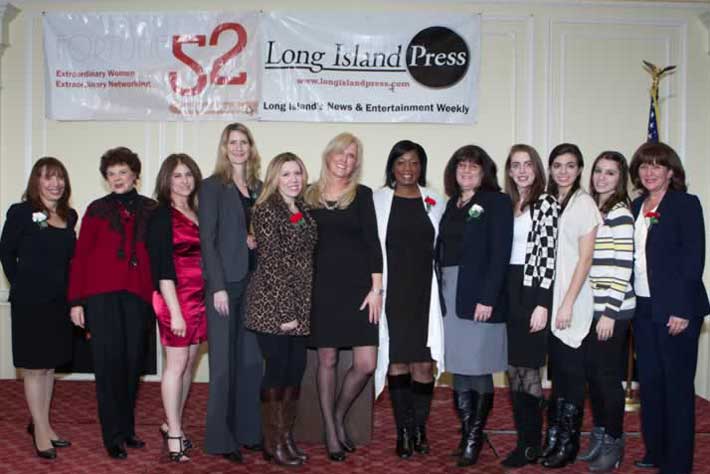Lori Melnitsky has been stuttering since she was four years old. It was a long journey for her to get to where she is today: one of the rare stutterers to have recovered from a severe stuttering disorder that has gone on to become a successful fluency expert and speech pathologist in a private practice.
“Back then it wasn’t talked about,” Lori says. “It was a very hidden topic and you were embarrassed by it. There was a tremendous amount of shame. I was never part of anything in school,” she says. “I went to speech therapy but didn’t speak. [My stutter] became worse and I couldn’t say my name, [when I tried] my head would jerk back.”
“I don’t think many people know what [stuttering] is,” Lori explains. “It’s a communication disorder that is characterized by the disruption of the normal flow of fluent speech, whole words, prolonging sounds, opening your mouth and not getting a word out. Fluency is the opposite of stuttering. I like using the words ‘fluency therapy.’ It’s a much more positive way of presenting it [stuttering].”

Lori Melnitsky
Ironically, we all experience dysfluency, or a break in fluent speech, in the way we talk from time to time like when we repeat words (you know…) and when we hesitate and inject (um, ah) in our sentences. Stuttering speech is when there are more dysfluencies than is considered average.
The exact cause of stuttering is not known, but it’s believed to be a genetic neurological link that affects more boys than girls in only about 1 percent of the population. In Lori’s case, her family was no stranger to the disorder, her father was a stutterer, and Lori’s daughter required fluency therapy and is now doing well.
Lori had majored in accounting in college and after graduating started her career path as an accountant. “I was miserable,” she remembers. “This is not what I wanted to do.” She knew that she needed to help others with communication disorders but wasn’t sure if she would be successful and asked herself, “How can I be a speech pathologist and stutter myself?”
Ironically, she applied to a college that felt she wouldn’t be a success and they tried to dissuade her from studying speech pathology. Undaunted by their negativity, Lori applied to Hofstra University, and with the encouragement of the faculty there, received her masters degree in communications disorders and speech pathology.
“I was used to being beaten down, and then I resolved to become tough,” she says. Lori knew that she needed to be an advocate for those who were suffering in silence and she refused to let stuttering limit what she could do in her life.
“I had enough already. I turned 40. I know how to communicate well and knew that it was time to really help people,” she said. “I didn’t want other people to go through what I went through all those years.”
Stutterers often try to avoid situations where they run the risk of speaking in public and will go to great lengths to hide the disorder by striving to do things to perfection in other areas of their lives to compensate for their stutter. Many are proficient at substituting words to mimic fluency, but ordering from a menu or answering a telephone call can be extremely agonizing; it can take a tremendous amount of mental energy to complete a task that fluent speakers take for granted.
“People think that when we stutter we’re nervous and that we should stop and slow down. It’s the worst thing you can say. They think we’re not as smart and don’t know the right words and they don’t want to listen to us because we stutter,” she says.
Lori opened her practice All Island Speech in Plainview five years ago and it has grown to include both children and adults. In the privacy of her office where her clients can let their guard down and just be themselves, free from the constant stress of trying to speak fluently, Lori helps them to understand that they’re not alone in their struggle, and that she can help them to succeed in life.
Lori said that with early intervention for children under 6 years old, 80 percent of dysfluency can be eliminated if treatment is done the right way. After 6 years of age, they need to be motivated to want therapy, she explained.
Since most stutterers don’t have a learning disability, Lori has become an advocate for parents to get help for their children but says that most schools don’t have a fluency expert on staff so many children are not getting fluency therapy in school. To compound the problem, obtaining insurance coverage for the evaluation and treatment of stuttering can be difficult. “The economy is hurting but it’s the best money you can spend,” Lori says.
Lori is not content to just help people in her private practice and is a co-chapter leader of the Long Island chapter of the National Stuttering Association (NSA), the largest advocacy organization for children, teens and adults who stutter. The NSA support group, the only one of its kind on Long Island, includes adults and teens and meets once a month at Hofstra University. The group setting gives stutterers an opportunity to practice fluency tools and a chance to meet and network with other stutterers and their families.
Lori continues to make huge strides in her own quest for fluency. “Four years ago I still had a very big fear of public speaking,” Lori remembers. She went to a conference hosted by the NSA and met 400 other stutterers. “It blew my mind,” Lori says. “I was a nervous wreck, but I spoke on the microphone for the first time in my life.” Then she smiles and adds, “I loved it.”
After that life-changing experience, Lori continues to speak in public. “Hofstra asked me to speak at their freshman orientation and since then I’ve spoken at various universities and colleges in the area to let [other stutterers] know there’s help available.”
Her determination, courage and refusal to let suttering limit what she could do in her life helped Lori overcome her own dysfluency. She has helped many people reach their potential in both their personal and professional lives.
“Parents cry in my office and are full of anguish,” Lori says, “but I tell them, ‘Look at me. I was a severe stutterer and I learned to communicate very well.’ I understand what they’re going through.”
For more information go to www.allislandspeech.com or call 516-776-0184 or email [email protected]
If you know a super woman who deserves good Fortune—and a profile—e-mail your nominations to Beverly at [email protected].






